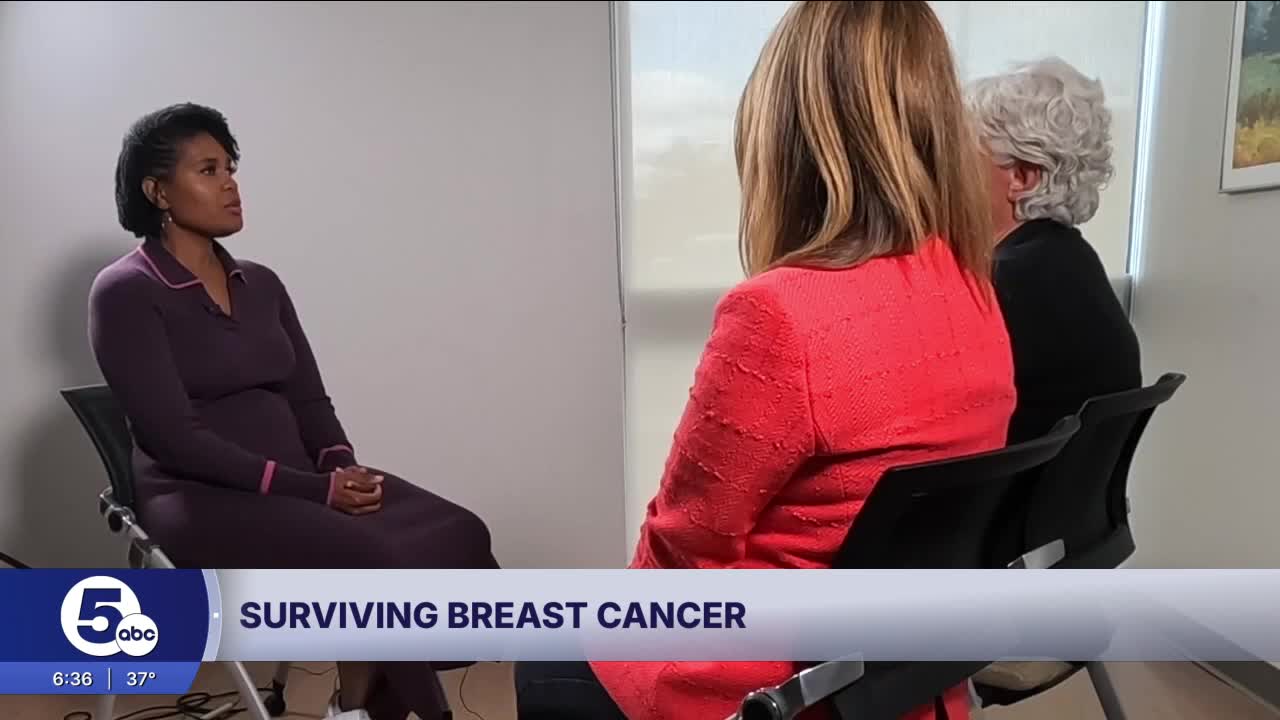LORAIN COUNTY, Ohio — Mary Wallace almost skipped her yearly mammogram in May 2024. It was just two days after her mother's funeral.
" I didn't want to take the time," Wallace said. "But at the end of the day, I said, you know what, I'm just going to go and get it over with and thank God I did."
That decision likely saved her life.
The 61-year-old was diagnosed with triple negative breast cancer, the most aggressive form of the disease. What started as routine screening quickly escalated when doctors discovered the cancer had grown.
"When my mom initially was diagnosed from her primary doctor, we were under the impression that the mass was very small, it was probably stage zero," said Maureen Pavicic, Wallace's daughter. "And then come to find out, after further testing and about a month and a half later it was larger, now we're in stage 2, almost 3 and so that was very scary."
Wallace had never missed her yearly mammogram since 2011, a habit that was crucial for her survival.

Understanding triple negative breast cancer
Dr. Ashley Simpson, a breast surgical oncologist at University Hospitals Seidman Cancer Center in Avon, said triple-negative breast cancer is challenging to treat.
"Triple negative breast cancer is the most aggressive form of breast cancer that we see," Simpson said. "It's so aggressive because it doesn't demonstrate any of the three receptors we check for which might provide some additional treatment options and so therefore, in most cases, chemotherapy is necessary to adequately treat triple negative cancers."
Despite its aggressive nature, Simpson said the cancer can be successfully treated. "Thankfully with all the research that's been done and all of the treatments including adding immunotherapy, in many cases to treat cancer, though it is aggressive, it can be completely treatable and curable," Simpson said.
The importance of early detection

Simpson stressed that early detection was critical in Wallace's case. "I think if she had waited, we would have been in a much more advanced stage and potentially even metastatic with these aggressive types of breast cancers," Simpson said.
Wallace's MRI revealed significantly more cancer than what doctors could see on the mammogram and ultrasound, highlighting the importance of comprehensive screening.
She had an intensive treatment regimen that included 16 rounds of chemotherapy, surgery, 20 rounds of radiation, and nine rounds of immunotherapy.
"At the very first treatment, I said, if I'm very, very sick from this I'm not doing it anymore so luckily, through all the prayers that everyone had for me, I sailed right through it," Wallace said. She continued working throughout most of her treatment, taking time off only on treatment days.
"I need the normalcy of everyday living, I needed to be normal," Wallace said.
Wallace used cold capping during her chemotherapy treatments, which helped preserve her hair for the first 12 treatments. The technique involves wearing a frozen cap during infusions to protect hair follicles.
Remarkable response to treatment
Wallace's response to treatment exceeded expectations. "In Mary's case, she was able to go from someone who required a mastectomy and then with her incredible response, we were able to conserve and preserve her breast," Simpson said. "Those are my favorite cases because we know we asked them to go through a lot with chemotherapy and you're able to show them like, look it was worth it."
Throughout her journey, Pavicic was by her side at appointments, often working remotely on her laptop during the long treatment sessions.
Wallace said she couldn’t have done this without her daughter, husband, other family members and friends.
Wallace's cancer was not genetic for her.
The experience has motivated Pavicic to be proactive about her health.
"It pushed me into focus on making sure I prevent myself from this situation and making sure I'm taking care of my own health and I don't end up in a similar situation," Pavicic said. "If you have that family history, it's important to fight for your right to be screened earlier than the normal, which I'm personally doing."

Cancer-free and sharing her story
Wallace completed her final treatment on July 16 and is now cancer-free. She continues to have doctor visits every three months for monitoring.
Adding to the family's challenges, Wallace's husband had open-heart surgery just one month after her surgery in December.
Both are doing well today.

Wallace now shares her story to spread awareness about the importance of regular screenings. "I almost didn't go and you know I just thank God every day that I did,” she said.
According to the American Cancer Society, there are 4 million breast cancer survivors in the United States who are either currently being treated or have finished their treatment.




